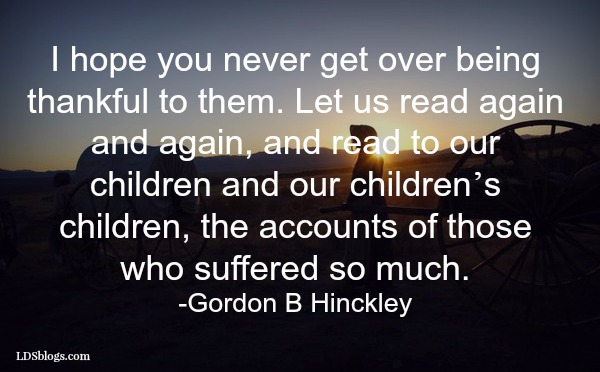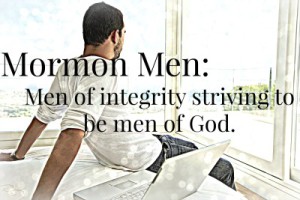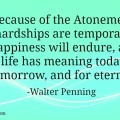I watched a program recently. It reflected on the sacrifices of the early saints and handcart pioneers who suffered so much that we could have the blessings today of the gospel in its fullness. It’s called 17 Miracles, and I highly recommend it.
Perhaps it was because I was thinking about the recent general conference sessions we just enjoyed. Or maybe I was moved because of my recent musings of ancestors who prepared the way that me and my loved ones who can now enjoy the enormity of the Church and the blessings of the gospel.
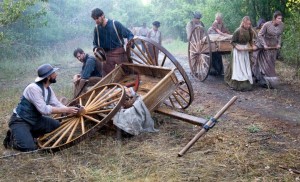 Either way, the experience was surreal and acute. It made me want to do the work for my ancestors and make available to them the blessings of eternal families, hope, and mercy of Jesus Christ.
Either way, the experience was surreal and acute. It made me want to do the work for my ancestors and make available to them the blessings of eternal families, hope, and mercy of Jesus Christ.
When Christ visited the people of the Americas, the Savior asked why the words of Samuel the Lamanite concerning the Resurrection and the many saints that arose from the dead at that time were not added to their records. Nephi, remembering that they had not been written straightway saw that this was recorded in their records. 3 Nephi 23 Similarly, we are expected to record the many blessings of God that have been manifest in our lives.
At the end of the show, some words appear on the screen with further descriptions of the people and the account just seen. When I saw the movie, everyone in the theater remained seated through this eulogy of sorts. I have taken the liberty of including a few of these sentiments below:
- Amy Loader, who with her husband had been so sure they were too frail to make the journey, became one of the stalwart examples of strength.
She died at the age of 83 still a widow.
She never could believe there was a man left in the world equal to her husband James. - Tamar Loader and Thomas Ricks were married the following year.
They settled Rexburg, Idaho.
Ricks College was named after them. - True to the blessing given to the Cunninghams, they all made it safely to the Valley.
Betsy became a mother of 14. 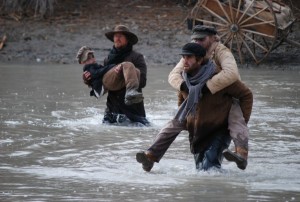 Jens Nielson settled 6 towns, starting with Bluff, Utah, where Jens was Bishop for 26 years.
Jens Nielson settled 6 towns, starting with Bluff, Utah, where Jens was Bishop for 26 years.
From his handcart trials, he limped the rest of his life with one foot at a right angle to the other.
He had prayed that if he was allowed to live to see Zion, all his days would be spent in usefulness under the direction of the Holy Priesthood.- Wilford Woodruff’s promise came true. Elizabeth Panting and her two children arrived safely in the valley. But after Elizabeth’s death, her daughter Jane began to doubt her mother’s story of the cave. Then a brother spoke in church about coming to Utah with the Willie Handcart Company. He told how they were starving, but then a sister in the company received dried meat in a miraculous way and shared it with him and others.
He was her second witness. - Mary Hurren arrived in the valley with black, frozen feet. Two doctors said she would die if her lower legs were not amputated. Her father told them she did not walk 1,000 miles just to have her legs cut off. Through faith and constant care, after three years, Mary walked again and eventually became a mother of 13.
- Though a strict captain, James G Willie was truly a great leader who showed genuine concern for those under his command. For two months after the rescue, he hovered between life and death, suffering the effects of the peril and exhaustion he incurred from continually helping others throughout the journey. When he died in 1895, nearly all the people of Mendon, Utah, where he served as Bishop and Mayor, closed their stores and came in from the fields to honor him.
- Levi Savage was a hero not only for what he did but also for what did not do.
Being reprimanded in public for giving his counsel must have been deeply humiliating.
But he never murmured or became bitter. He continued to humbly follow his leaders.
Two year later he married Ann Cooper of the Willie Company.
He died in 1910, still strong in the faith at nearly 91 years old. - Even with all their hardships, the percentage of those in the Willie / Martin Companies that died was not much higher than most other treks and wagon train journeys along the Oregon Trail.
Considering what they went through, this is perhaps the greatest miracle of all.
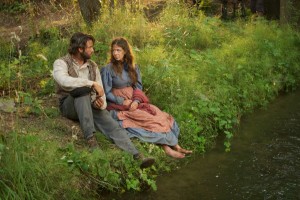 “I hope you never get over being thankful to them. Let us read again and again, and read to our children and our children’s children, the accounts of those who suffered so much.”
“I hope you never get over being thankful to them. Let us read again and again, and read to our children and our children’s children, the accounts of those who suffered so much.”
Gordon B Hinckley
When President James E Faust was told the story of George and Sara, he wept. He called theirs one of the greatest love stories in the history of the western migration. And in 1997, he asked that they be sealed in the Temple for time and all eternity. If you’d like to know their story, please click here. It is very sweet.
“It will all be worth it.”
Sarah Franks
Savior, Redeemer of My Soul
- Savior, Redeemer of my soul,
- Whose mighty hand hath made me whole,
- Whose wondrous pow’r hath raised me up
- And filled with sweet my bitter cup!
- What tongue my gratitude can tell,
Oh gracious God of Israel.
- Never can I repay thee, Lord,
- But I can love thee. Thy pure word,
- Hath it not been my one delight,
- My joy by day, my dream by night?
- Then let my lips proclaim it still,
- And all my life reflect thy will.
-
O’er rule mine acts to serve thine ends.
- Change frowning foes to smiling friends.
- Chasten my soul till I shall be
- In perfect harmony with thee.
- Make me more worthy of thy love,
- And fit me for the life above.
Text: Orson F. Whitney, 1855-1931
About Walter Penning
In 1989, Walter Penning formed a consultancy based in Salt Lake City and empowered his clients by streamlining processes and building a loyal, lifetime customer base with great customer service. His true passion is found in his family. He says the best decision he ever made was to marry his sweetheart and have children. The wonderful family she has given him and her constant love, support, and patience amid life's challenges is his panacea.
Twitter •

